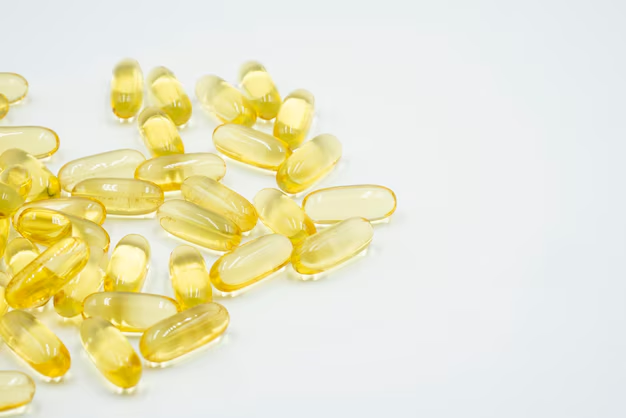
Benefits Of Sardines For Our Health
The benefits of sardines for our health are well known to nutritionists. Sardines are a really popular food worldwide, especially in smaller fishing communities. This fish was widely consumed in ancient societies, providing a crucial source of many nutrients.
Sardines are a highly nutrient dense food, possibly one of the best examples of high nutrient density with the Brazil nut. This food is able to support various bodily functions because of their rich nutritional content. Sardines are packed with protein, calcium, phosphorus, iron and iodine.
One huge plus about sardines is that they offer energy supporting fatty acids and proteins, with next to no carbohydrates. This could be beneficial for people looking for healthy weight loss or to support lean muscle mass. Nutrients such as phosphorus and calcium are vital for supporting muscle growth. While they could also contribute to healthy DNA and bone production. Regularly eating sardines could give you a bit of a boost at the gym. Sardines are so easy to include in a healthy meal. They can be lightly grilled or cooked on a barbeque.
In this article we will look at the potential health benefits of eating sardines regularly, including how the nutrients in sardines could affect aspects of your brain or heart health.

Key Nutrients Within Sardines
Sardines are packed with nutrients and optimal nutrition is vital for disease prevention. For example, iron which is found in sardines, is important for red blood cell formation and for avoiding Anaemia. Sardines are also rich in nutrients such as calcium and phosphorus that are needed to promote more optimal bone density. These are vital for the potential health benefits available from regularly eating sardines.
Phosphorus
Phosphorus supports optimal bone health, but it also forms the life supporting backbone to 99.999% of the life on Earth. The mineral phosphorus is essential to DNA formation. Without this mineral you would not be able to survive and this is why phosphorus is probably one of the most important minerals on the planet.
Sardines with bones are rich sources of phosphorus, with the bones being small enough to not cause harm and are easily digested. They may be a healthier source of phosphorus than say bone broth from farmed land animals, which may contain toxins such as mercury or lead. These heavy metal toxins can very seriously interfere with our bodily processes in accumulated amounts. In 100 grams of sardines there is about 500mg of phosphorus, which nearly covers your 700mg RDA for phosphorus.
Phosphorus is so key for so many processes throughout the body and important rate limiting nutrient. This is why improving your phosphorus status could result in bigger muscle mass or improved gym performances. Especially considering its role in DNA production. Phosphorus also binds to mineralized calcium in bone to form strong bones. Higher bone density contributes to improved gym results because of the relationship between improved muscle strength, growth and bone formation. Improving your bone density can also have other health benefits such as reducing incidence of bone breakages and could support your immunity too.
Calcium
Calcium, like phosphorus, is one of the most important nutrients for maintaining optimal bone mass. Your bones are very important, providing structural support for your daily activities. That can include climbing stairs or walking. Around 80% of bone is calcium and phosphorus, with calcium providing bone with hardness.
Many people are calcium deficient and this promotes bone loss in the body. Without enough calcium in the body, you will start to lose bone mass instead of producing bone tissue. This is something that sufferers of osteoporosis would also want to avoid.
Sardines are an incredible source of calcium and can support with more optimal bone health. In 100 grams of sardines there is 382mg of calcium, which is nearly half of your RDA. This is also a non-dairy source of calcium, which is great for those that are lactose or dairy intolerant.
Vitamin D
One huge regulating factor for calcium intake is vitamin D because it helps to drive calcium into the intestinal cells during digestion. In addition to phosphorus and calcium, sardines are also a really good source of vitamin D. This is why the sardine is a great bone health supporting food. Sardines have one of the most nutrient dense amounts of vitamin D of all the fish that we eat. They have a massive 200 IU vitamin D per 100 grams or about 24% NRV.
Vitamin D is also fat soluble and sardines are rich in healthy fats such as omega 3, which synergistically improves vitamin D intake in the intestines. This effect emphasises how good sardines could be for maintaining healthy vitamin D levels.
Vitamin D is an essential nutrient that regulates the production of different hormones and is a prohormone with actions in the body. Our hormones, synthesised from healthy fats, assist with making sure our bodies function properly and also assist with normal growth, which can result in improved or optimal work out performance.
Having sufficient vitamin D is linked to improved muscle strength, while it is associated with reduced risks of some cancers. Deficiencies in vitamin D and calcium, found in high levels in sardines, increase the levels of parathyroid hormone. This can promote bone loss and risk of fractures.
Vitamin D deficiency is therefore as relevant to older adults and it is to younger adults. Globally, vitamin D deficiency is a growing issue. Sardines could have various benefits to our health through improved Vitamin D status, especially muscular, bone and hormonal health.

Omega 3
Another of the many benefits of eating sardines is the provision of a healthy source of healthy fatty acids. Because humans are unable to make omega 3 fatty acids, they are a dietary requirement.
Atlantic sardines with bones contain about 1 gram of DHA, EPA and DPA omega 3 fatty acids. They also contain about 0.50 grams of ALA omega 3 form per 100 grams. This is a very significant serving of omega 3.
Eating healthy amounts of healthy fatty acids, such as omega 3 fatty acids, is vital for optimal health. Improved levels of omega 3 is linked to lower levels of depression, lowered risk of cardiovascular diseases, improved skin health and brain health. They are needed for the overall structural integrity of your cell membranes, while they are essential for our brain cells too. Dietary fat is often overlooked and frown upon, however fatty acids do make up a large portion of our bodies and contribute to hormonal health.

Sardine Omega 3 For Brain And Heart Health
Omega 3 fatty acids help to improve the speed of nerve cell transmission, by supporting myelin functioning. This is how healthy dietary fats can support brain health and omega 3 is linked to lowered risk of cognitive declines and Alzheimer’s disease. Communities eating more fish, such as sardines, seem to experience more benefits to their brain health and are at less risk of dementia.
Because omega 3 can support healthy fatty acid levels, they are thought to reduce risk of heart diseases.
The American Heart Association recommends 1 gram of omega 3 fatty acids a day for cardiovascular disease sufferers. Research also shows that taking omega 3 supplements, with about 1.2 grams of DHA, for 6 weeks improved HDL levels in the blood. HDL levels are a risk factor for cardiovascular disease, which is a growing issue in the west. Current research suggests that may be because of the poor nutritional composition of western diets.
Sardines provide healthy sources of nutrients such as omega 3 fatty acids and could have benefits for those with or at risk of CVD. The results of one clinical study support this, suggesting that sardines could reduce cardiovascular disease risk.
Sardine Omega 3 And Skin Health
Because sardines are so rich in omega 3 fatty acids, they have potential health benefits for the skin and may help with some dermatological or skin conditions.
With fat restricted diets one can experience symptoms such as skin itching, hair loss and water loss. Foods high in omega 3, like sardines, seem to have a positive effect on acne. Sebum production is affected by inflammatory chemicals and omega-3 fatty acids may downregulate these inflammatory responses.
Omega 3 may replenish our skin barrier in the right quantities, reducing inflammation, influencing skin diseases such as psoriasis.
Through simple actions in our body, sardines could have significant benefits for our skin health.

Sardine Proteins And Amino Acids
Sardines are packed with protein, containing 14 grams of protein per five small sardines. Eating protein regularly is important for sustaining muscle mass and supporting body strength. Higher levels of protein intake support protein synthesis in the body. That helps to support processes like immune system functioning, red blood cell production and bone formation.
Sardines have an excellent amino acid profile, rich in rate limiting amino acids that can support many different processes.
Methionine for example is a rate limiting amino acid that is crucial for normal protein synthesis and supports improved muscle mass. Sardines contain about 0.70 grams of methionine per 100 grams. Sardines also contain rich amounts of glutamic acid, 3.67 grams per 100 grams, which may improve brain functioning as a brain neurotransmitter. There is about 2.52 grams of aspartic acid in 100 grams of sardines. This amino acid may also support brain health, supporting the production of DNA and neurotransmitters.
Sardines are also a source of L Arginine, containing about 1.47 grams of L Arginine per 100 grams. You need at least 2.5 grams of L Arginine a day. L Arginine supports protein synthesis and stimulates muscle growth. 2 grams of L Arginine a day, complimentary to one’s diet, has been shown to improve athletic performance. L Arginine causes nitric oxide production which stimulates blood vessel and collagen formation. Through these actions sardines can assist with nourishing the skin and benefits muscle recovery from the gym.
This amino acid may also help to sensitise tissues to insulin, while L Arginine may support sperm production and fertility. One clinical study supports this, suggesting that regular sardine consumption could protect against type 2 diabetes. Another study suggests that sardine proteins, because of their richness in certain essential amino acids, may support weight loss.
Sardine BCAAs
Sardines are an excellent source of branched chain amino acids. Many studies support findings that these particular amino acids encourage more optimal muscle growth and can support gym performance. They are also thought improve bone density. 100 grams of sardines has high amounts of BCAAs, containing 2 grams of leucine, 1.13 grams of isoleucine and 1.27 grams of valine.
Sardines And Collagen Production
Collagen is the most abundant protein in mammals. Studies show the uptake of collagen peptides is higher from fish than other animals.
Sardines are rich in highly bioavailable collagen peptides. Sardine skin contains 80% of its equivalent weight in collagen complex type I, providing a rich source of collagen. In 100g of sardines with bones, there is 0.87g of proline and 1.18g of glycine, two of the main constituents of skin collagen.
Collagen plays a key role in connective tissue formation and is used in the cosmetics industry. The body needs collagen to repair wounds and it is thought to improve the youthfulness of the skin. Because of its role in connective tissue formation, collagen encourages bone formation.

Iodine
Deficiencies in iodine rank among the highest in the world. Diets lacking iodine lead to cretinism, lack of growth, metabolic disorders and also thyroid cancer.
Being a fish, sardines could contribute massively to our iodine intake. Sardines provide of 170µg iodine per 100 grams of sardines. The recommended dietary allowance for iodine is 150µg of iodine every day. This means you can cover your RDA from a small portion of sardines. Iodine from seafood sources is very bioavailable, with up to 90% of the iodine being absorbed per meal.
Iodine is important because our metabolism and resulting growth is directed by iodine levels, also supporting brain health. This mineral could also have an antioxidant function in the body. Our thyroid glands store iodine, with their partner mineral selenium. Together they form a partnership that supports optimal thyroid health.
The iodine present in sardines therefore could many potential benefits for our health, including supporting healthy growth.
Zinc
In 100 grams of sardines with bones, there is roughly 1.30mg of zinc. This is about a tenth of our daily RDA.
Zinc has really strong antioxidant effects and is a co-enzymes that switches certain processes on. Zinc may help to prevent dementia or other brain degenerative diseases. It also stimulates immune cell responses and pathways that improve our resistance to infection.
Deficiencies in zinc reduce testosterone levels. Optimal levels of zinc influence fertility and muscle strength. Zinc can directly influence muscle formation through IGF1 cell signalling.
Potassium
There is approximately 500mg of potassium in 100 grams of sardines. While our RDA for potassium is variable, this serving of sardines covers around half of your RDA for potassium.
Potassium is required in every tissue throughout the body, as an essential electrolyte, needed for optimal nerve and muscular functioning. This electrolyte is thought to significantly reduce the risk of strokes, providing a blood pressure lowering effect. Potassium sufficiency also reduces risk of kidney stones.
These are added effects and potential benefits for our health, particularly heart health, that can result from eating sardines regularly.
Iron
In 100 grams of sardines with bones, there is roughly 3mg of iron. Considering our RDA for iron is between 8mg and 18mg, a serving of sardines does contribute to our RDA.
Iron is mainly used in the body for red blood cell production and because of this improves oxygen status and blood flow rates. This could assist with supporting brain functioning, while also promoting endurance.

Niacin
In 100 grams of sardines there is approximately 5.24mg of niacin and this is about a third of our RDA. Niacin, or vitamin B3, is vital for energy production. Vitamin B3 supports optimal mitochondrial health, DNA repair, and body growth. Optimal niacin levels are essential for healthy metabolism within the body.
Vitamin B12
In 100 grams of sardines there is approximately 8.94µg of vitamin B12 and your RDA is 2.4µg about per day. This is well above the RDA for vitamin B12. Sardines provide a really good source of this essential nutrient and is another benefit of eating sardines.
Cobalamin or vitamin B12 is a vitamin cofactor needed for normal energy production and encourages normal growth in the body. Vitamin B12 is involved in the glutathione cycle, which supports the body with key antioxidant activities. This vitamin may also support more optimal cognitive function, while the metabolic regulation of B12 encourages more optimal immune functioning.
Choline
There is approximately 75mg of choline in 100 grams of sardines. Your RDA for choline is about 425mg per day, so this is about a quarter of your RDA. Choline is a really important nutrient and influences brain health. A higher choline intake over a lifetime improves Alzheimer’s symptoms and offers neuroprotective functions. The blood brain barrier protects the brain from harmful compounds and choline supports optimal blood brain barrier health. Lower choline and phosphatidylcholine levels in the blood are linked to an increased rate of liver damage. While people eating choline rich food sources, such as sardines, had lower levels of inflammation.

Summary
As a food, gram per gram, you won’t find many foods as nutritious as sardines. They are also considered to be no carbohydrate, or very low carbohydrate, instead providing healthy fatty acids as an energy source. Sardines could have real benefits for people looking to achieve healthy weight loss or to support lean muscle mass.
Sardines are rich in nutrients such as phosphorus, calcium and vitamin D which are required to promote optimal bone density. Phosphorus in particular supports growth and muscle recovery. A good portion of sardines can nearly cover your entire RDA for phosphorus. Sardines have a high vitamin D content, which may have benefits including improved muscle strength and bone formation.
Healthy fatty acids are so important for our health and sardines are rich in omega 3. Omega 3 could lower risk of depression, cardiovascular diseases and improve skin health. Omega 3 fatty acids may also support brain functioning and improve the speed of nerve transmission. The choline content in sardines may also support more optimal brain health.
Another one of sardine’s strong health benefits is its protein content. Being rich in methionine, BCAAs and L Arginine, sardines can have benefits for sustaining immune functioning, muscle mass and recovery from the gym. Collagen peptides and L Arginine offer nourishing nutrients for the skin.
Sardines are also rich in minerals such as iodine, zinc and potassium, all of which are critical nutrients required throughout the body. In addition, sardines contain B vitamins that are crucial to supporting metabolism within the body including vitamins B12 and B3.
Sardines are one of the most nutrient dense foods known to us, packed with nutrients such as amino acids, calcium, phosphorus, iron and iodine.
For more interesting articles, see the main articles page below.





